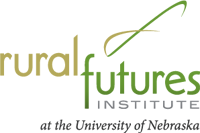
Rural Futures Institute: Publications
Date of this Version
8-2020
Document Type
Article
Citation
Nebraska Rural Poll Research Report 20-2, August 2020
Abstract
The definition of resilience is the capacity to recover quickly from difficulties. Synonyms include toughness, perseverance and grit. Last spring’s severe weather events and this year’s ongoing COVID-19 pandemic are likely testing the resilience of rural Nebraskans. Given that, how do rural Nebraskans rate their communities on dimensions that measure their resiliency? How confident are they that the federal government or local emergency management authorities can contain infectious disease outbreaks? How do they rate their ability to help their community handle adversities? How prepared are rural Nebraskans to deal with financial emergencies? This paper provides a detailed analysis of these questions. This report details 1,979 responses to the 2020 Nebraska Rural Poll, the 25th annual effort to understand rural Nebraskans’ perceptions. Respondents were asked a series of questions about resilience. Comparisons are made among different respondent subgroups, that is, comparisons by age, occupation, region, etc. Based on these analyses, some key findings emerged:
• Most rural Nebraskans agree that their community contains most elements of resilience: trust among residents, ability to overcome an emergency situation, residents working together to improve the community, people that help each other, community information sharing and community priority and goal setting.
• Rural Nebraskans are less likely to say their community treats everyone fairly, actively plans for future disasters, trusts public officials, and look at its successes and failures to learn from the past.
• Most rural Nebraskans agree that infectious diseases will have a major impact in the country in the next few years.
• Most rural Nebraskans assume that there will be limits on what federal and local governments can do to contain a widespread infectious disease outbreak.
• Most rural Nebraskans believe they can help improve their communities when something bad happens and can take setbacks in their community’s progress in stride.
• Savings, credit card(s) and a bank loan are the most accessible sources of emergency funds for rural Nebraskans.
Included in
Agriculture Commons, Arts and Humanities Commons, Business Commons, Education Commons, Emergency and Disaster Management Commons, Engineering Commons, Medicine and Health Sciences Commons


Comments
Copyright 2020, University of Nebraska-Lincoln. Used by permission